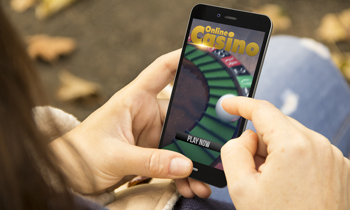Giving Up Gambling Is Not Easy
- Giving Up Gambling Is Not Easy To Be
- Giving Up Gambling Is Not Easy For A
- Giving Up Gambling Is Not Easy To Play

- Generally speaking, however, it can be viewed as an activity whereby an individual is unable to resist impulses to gamble, thus leading to serious adverse personal or social consequences. Stopping problem gambling can be extremely difficult, but once stopped, the ongoing task is to stay stopped.
- “The gambling known as business looks with austere disfavor upon the business known as gambling.” – Ambrose Bierce “To get it right, be born with luck or else make it. A little money helps, but what really gets it right is never facing the facts.” – Ruth Gordon “Gambling is a way of buying hope on credit.
Stopping Gambling isn't easy. A gambling problem is very strong, plays many tricks on on our minds, & tries to convince us of many lies. In the beginning the constant thoughts and urges to gamble can be intense. Combat this with the previous 9 steps & a one on one coach, sponsor, or therapist.
The new European data protection law requires us to inform you of the following before you use our website:
We use cookies and other technologies to customize your experience, perform analytics and deliver personalized advertising on our sites, apps and newsletters and across the Internet based on your interests. By clicking “I agree” below, you consent to the use by us and our third-party partners of cookies and data gathered from your use of our platforms. See our Privacy Policy and Third Party Partners to learn more about the use of data and your rights. You also agree to our Terms of Service.
Being a compulsive gambler can harm your health and relationships, and leave you in serious debt.
If you have a problem with gambling and you'd like to stop, support and treatment is available.
Are you a problem gambler?
Try this questionnaire:
- Do you bet more than you can afford to lose?
- Do you need to gamble with larger amounts of money to get the same feeling?
- Have you tried to win back money you have lost (chasing losses)?
- Have you borrowed money or sold anything to get money to gamble?
- Have you wondered whether you have a problem with gambling?
- Has your gambling caused you any health problems, including feelings of stress or anxiety?
- Have other people criticised your betting or told you that you had a gambling problem (regardless of whether or not you thought it was true)?
- Has your gambling caused any financial problems for you or your household?
- Have you ever felt guilty about the way you gamble or what happens when you gamble?
Score 0 for each time you answer 'never'
Score 1 for each time you answer 'sometimes'
Score 2 for each time you answer 'most of the time'
Score 3 for each time you answer 'almost always'
If your total score is 8 or higher, you may be a problem gambler.
Help for problem gamblers
There's evidence that gambling can be successfully treated in the same way as other addictions. Cognitive behavioural therapy usually has the best results.

Treatment and support groups are available for people who want to stop gambling:
GamCareGamCare offers free information, support and counselling for problem gamblers in the UK.
It runs the National Gambling Helpline (0808 8020 133) and also offers face-to-face counselling.
National Problem Gambling Clinic If you live in England or Wales, are aged 13 or over and have complex problems related to gambling, you can refer yourself to this specialist NHS clinic for problem gamblers.
See if you meet the criteria for this service.
Gordon Moody Association The Gordon Moody Association offers residential courses for men and women who have problems with gambling – email help@gordonmoody.org.uk or call 01384 241292 to find out more.
It also runs the Gambling Therapy website, which offers online support to problem gamblers and their friends and family.
Gamblers Anonymous UKGamblers Anonymous UK runs local support groups that use the same 12-step approach to recovery from addiction as Alcoholics Anonymous. There are also GamAnon support groups for friends and family.

Self-help tips for problem gamblers
Do:
- pay important bills, such as your mortgage, on payday before you gamble
- spend more time with family and friends who don't gamble
- deal with your debts rather than ignoring them – visit the National Debtline for tips
Don't:
- view gambling as a way to make money – try to see it as entertainment instead
- bottle up your worries about your gambling – talk to someone
- take credit cards with you when you go gambling
For more self-help tips, see the Royal College of Psychiatrists website.
Giving Up Gambling Is Not Easy To Be

If you're affected by someone's gambling
If you're having problems because of another person's gambling, it's best to be honest with them about it. They need to know how their behaviour is affecting you.
Support is also available to people who are worried about someone else's gambling:
GamCare Gamcare offers support and information for partners, friends and family of people who gamble compulsively.

GamAnon
Local support groups for anyone affected by someone else's gambling problem – find your nearest group.
Real stories of recovery from gambling
Giving Up Gambling Is Not Easy For A
Tell your own story and post messages of support in the GamCare recovery diaries forum.
Giving Up Gambling Is Not Easy To Play
Page last reviewed: 31 December 2017
Next review due: 31 December 2020



